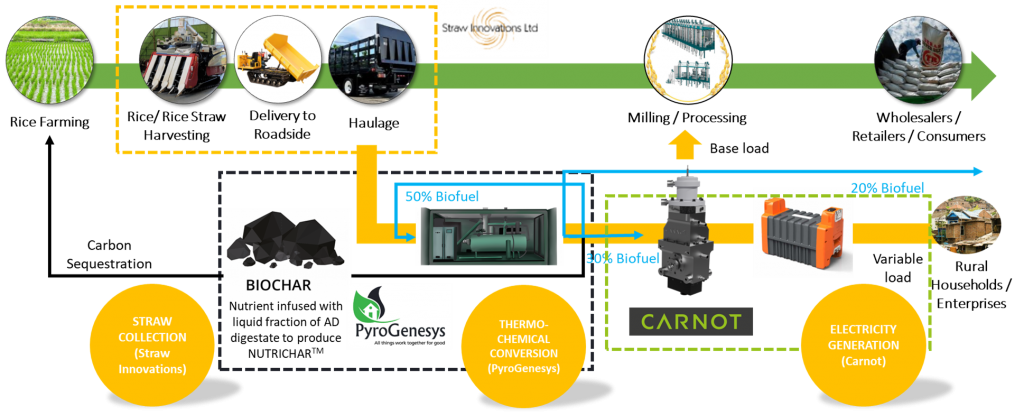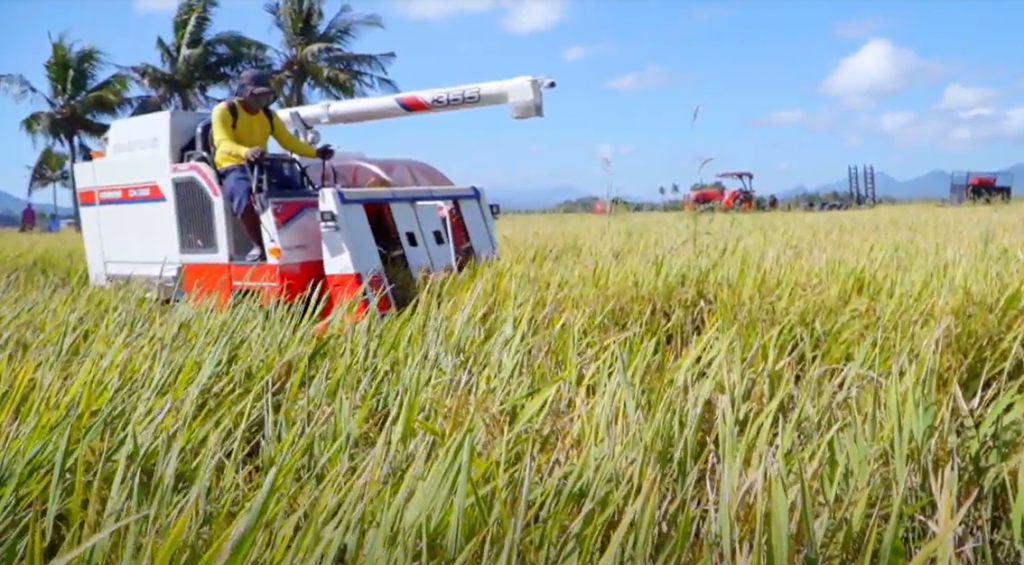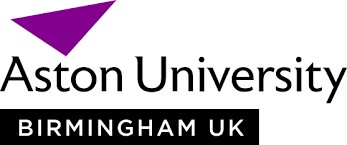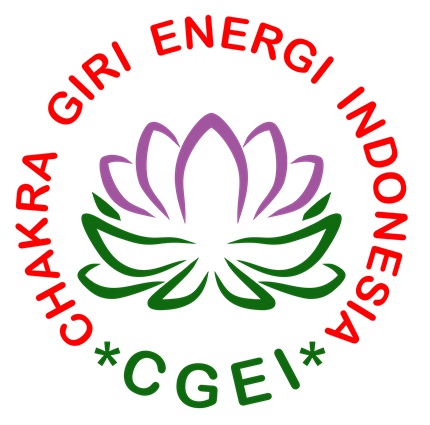Carnot is leading a consortium to develop the world’s first profitable rice-straw bioenergy demonstrator for a rural community in Lombok Island, Indonesia. Rice straw is separated from the grains during harvesting and either combusted or left to decompose, thus producing CO2 or Methane, the latter being an incredibly potent greenhouse gas.
With the support of local implementer Chakra Giri Energi Indonesia the project aims to identify alternative and valuable uses for waste rice straw. We will convert this harmful waste stream into:

Straw Innovations has created innovative technology that overcomes the barriers to harvesting it in all weathers, unlocking a potential 300Mt of rice straw generated in Asia every year. Rice straw has high ash content (around 20%), comprising about 75% silica. This, combined with other components in the straw (chlorine, potassium) causes melting and slagging / fouling in boilers when combusted. Hence, it is not an easy fuel to chop or combust.
PyroGenesys have developed a lower-temperature pyrolysis process which can convert rice straw into Biochar, a carbon-sequestering fertiliser that can be used by the rice farmers, and biofuel. The carbon sequestered can be traded on carbon removal markets. Surplus biofuel not used to generate electricity can be sold. Electricity is a low-value commodity and renewable electricity projects will typically require very large scale to be profitable and attract funding required from investors. PyroGenesys’ process solves this problem by opening up two very high-value revenue streams.


Carnot is developing ceramic engine gensets with double the efficiency of state-of-the-art diesel gensets, capable of operating on all fuels. These will provide electricity to the rice mills as their base load as well as electricity to a rural community. Integrating Carnot’s gensets enables revenues generated by biofuel sales to be maximised.
The Energy and Bioproducts Research Institute at the University of Aston is also supporting on the project by carrying out research into the fuel composition, emissions outputs and analysing outcomes at the end of each stage.
Indonesia is the:
There is a reluctance to move to renewable energy due to fossil fuel sunk costs/subsidies and no proven profitable off-grid low-carbon energy business model. This demonstrator project aims to be the catalyst to breaking the deadlock and unleashing investment into Indonesia’s enormous renewable energy potential.
Key project outputs:






| Cookie | Duration | Description |
|---|---|---|
| cookielawinfo-checkbox-analytics | 11 months | This cookie is set by GDPR Cookie Consent plugin. The cookie is used to store the user consent for the cookies in the category "Analytics". |
| cookielawinfo-checkbox-functional | 11 months | The cookie is set by GDPR cookie consent to record the user consent for the cookies in the category "Functional". |
| cookielawinfo-checkbox-necessary | 11 months | This cookie is set by GDPR Cookie Consent plugin. The cookies is used to store the user consent for the cookies in the category "Necessary". |
| cookielawinfo-checkbox-others | 11 months | This cookie is set by GDPR Cookie Consent plugin. The cookie is used to store the user consent for the cookies in the category "Other. |
| cookielawinfo-checkbox-performance | 11 months | This cookie is set by GDPR Cookie Consent plugin. The cookie is used to store the user consent for the cookies in the category "Performance". |
| viewed_cookie_policy | 11 months | The cookie is set by the GDPR Cookie Consent plugin and is used to store whether or not user has consented to the use of cookies. It does not store any personal data. |
